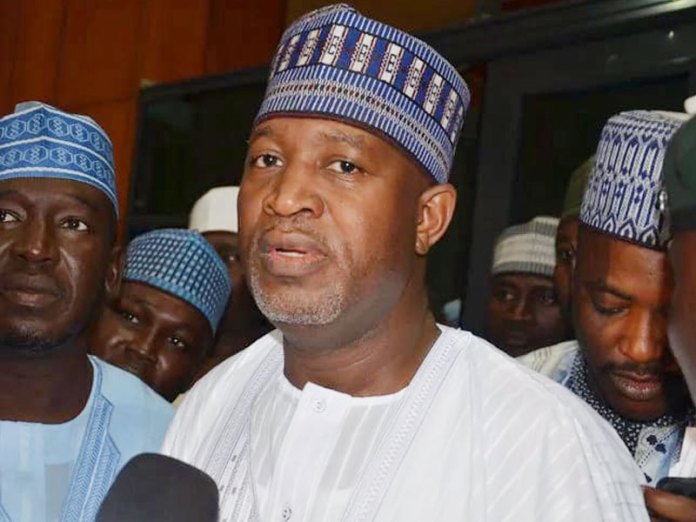There is an indication that more Nigerian airlines may close shop as the current economic downturn has hampered airlines operations.
Industry experts have expressed concern that the forex scarcity is taking a huge toll on the aviation sector because virtually everything done in the airline business requires foreign exchange, except the purchase of aviation fuel.
Investigation has revealed that already Nigerian airlines have lost over 45 percent of their passenger traffic while the value of their ticket has also nosedived.
An operator on Wednesday explained why the air transport sector is fairing badly under the present economic morass. He expressed doubt about the possibility of the airlines to survive, if the recession continues in the next six months.
“I doubt whether Nigerian airlines will survive the next six months if naira does not gain value and continues to lose against the dollar. Practically, let us look at the popular aircraft many Nigerian airlines use: Boeing B737. Average number of seats on that aircraft is 120 and if the fare for Lagos to Abuja flight is N25, 000 the airline will generate N3million for every flight.
“At the exchange rate of N400 for $1 dollar that N3million will be $7, 500. But 18 months ago, naira was exchanging N165 for $1 and the value of the same N3million $18, 750. Then during that period aviation fuel was costing N110 per litre and today it costs N220 per litre and the fuel volume for that one hour flight from Lagos to Abuja is 3000, including endurance fuel.
“About 18 months ago 3000 litres of fuel would cost N330, 000, but at the present price, it costs N660, 000. You have to note that airfares have not changed. It is just around that N25, 000. So the fuel price increased by 100 per cent while the value of the dollar has increased by over 200 percent.”
He also noted that as the value of naira has plunged, airlines still pay their expatriate workforce in dollars and these include pilots, engineers and others that are providing technical services and some Nigerian pilots that insist they be paid in dollars.
“So you can see that we spend more money in naira for far less number of dollars and this means that it is only for $7, 500 that a flight leaves Lagos to Abuja and vice versa,” he said.
The operator also disclosed that when an airline leases aircraft, the average calculation is that the airline will pay the lessor about $12, 500 per hour of the aircraft operation and, according to him, the amount could come down to $12,500 when the airline is making a bulk lease of the aircraft of over 200 hours.
So what this means is that while the Nigerian airline earns $7500 per one hour flight, it pays the lessor $12, 500 for one hour and incurs a loss of $5000 in each flight.
“This shows clearly that these airlines will not survive if the recession period is prolonged. So pilots, engineers, aircraft maintenance, insurance, spare parts and training are paid in dollars. This is a sector that is dollarized. So how can anybody survive this? This is simply a matter of postponing the evil day,’ the operator said.
In addition to the above, the airline pays for landing and parking, enroute and navigation charges to the Nigeria Airspace Management Agency (NAMA) and other miscellaneous expenses.
In a recent interview with the Minister of State for Aviation, Senator Hadi Sirika, he promised that government would facilitate the establishment of aircraft maintenance facility in Nigeria and also a leasing company so that Nigerian airlines could lease aircraft at cheaper cost and also maintain their aircraft locally. The cost of maintenance for C-Check begins from $600, 000 to over $1 million.


 Billionaire Watch3 weeks ago
Billionaire Watch3 weeks ago
 Startups4 weeks ago
Startups4 weeks ago
 News4 weeks ago
News4 weeks ago
 News4 weeks ago
News4 weeks ago
 Bitcoin4 weeks ago
Bitcoin4 weeks ago
 Naira4 weeks ago
Naira4 weeks ago
 Forex3 weeks ago
Forex3 weeks ago
 Treasury Bills4 weeks ago
Treasury Bills4 weeks ago
























